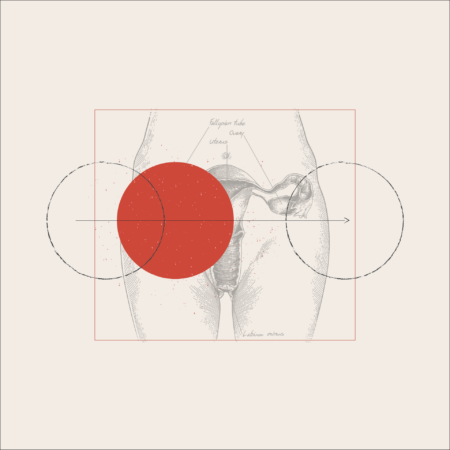After years of most investors ignoring the space, women’s health has finally emerged as one of the most promising areas of investment, with female-founded healthcare companies now comprising more than 43 percent of dollars raised so far this year. In 2011, that share was less than 25 percent. And yet, it still remains underfunded, with just 2.3 percent of overall funding going to women-led startups in 2020. The reasons for this are complicated, but the fact that 64 percent of venture capital firms are yet to hire one female partner is a major contributing factor, resulting in only a small percentage of venture capital dollars controlled by female investors.
“To ensure inclusive and equitable access in the healthcare industry will require historic investment, collaboration, and innovation,” says Lindsey Taylor Wood, The Helm’s founder, CEO, and general partner. “It will require not only frontline activists continuing to advocate for our rights, but activist funders capitalizing visionary founders who are building toward a brave new world. There has never been a more critical moment for each and every stakeholder to take a meaningful step forward.” With that, we asked seven female VCs about the state of the healthcare industry today—and what they’re most excited about for the future.
Lisa Molinaro, principal at Kapor Capital
“When I started investing in women’s health, I was shocked by the lack of research and evidence-based medical interventions relative to other areas of healthcare. There is so much we don’t know about the female body that could help us develop solutions, for instance reducing preterm birth rates, eradicating cervical cancer, or alleviating menopause symptoms. For a while, I had to pass on so many women’s health companies because there was no evidence-base to back up their solutions, but that is starting to change. There is now more government funding and academic research partnerships to help us understand the impact of technology on women’s health.”
Lisa Suennen, lead partner of the Manatt Venture Fund
“Finally, there is a small recognition that 51 percent of people are female, at least on the healthcare front. But there is still little investment focused on women over age 40. An abundance of investment is going towards fertility, birth control, and gynecological care during childbearing years but very little still during the menopause or later in life years. Every single year, about 1.5 million women start menopause. Women have double the lifetime risk for Alzheimer’s and other similar conditions as compared to men and are more likely to die of heart attacks. When women’s health companies are funded to serve women as whole people throughout the life cycle, I will be satisfied with the progress.”
Carli Sapir, founding partner Amboy Street Ventures
“We are excited to see the long-standing taboo around sexual health being lifted and allowing innovation to flourish. With innovative companies like Dame Products, Dipsea, and Genney, it’s no surprise that women’s digital health startups raised a record $418 million in venture capital in 2020. At the same time, massive exits in the space are turning heads. VCs are taking note of the incredible success of Owlet, Hims, Alydia, Kandy Therapeutics, and Care/of which all reached massive exits in the last year in the Sexual Health and Women’s Health space. This is awesome for the industry at large.”
Rebecca Lynn, co-founder and general partner Canvas Ventures
“The pace of innovation in healthcare has never been faster. We’re seeing the rapid adoption of telemedicine and the rise of digital health has created all sorts of new types of care delivery, like at-home health services and democratized prescriptions for everything from dermatology and mental health to specialized chronic conditions. In particular, we’ve seen a spike in companies founded in the fertility space (both for women and men), and personalized approaches to women’s health over a longer lifecycle from puberty to menopause. Personally, I’ve been a believer for a long time in the benefits of functional medicine and personalized diagnostics from biome diagnostics to epigenetics and sexual health. They present an opportunity to cure and improve healthcare conditions by attacking the root cause of the problem through better lifestyle choices and holistic treatment methods.”
Sara Brand, founding general partner True Wealth Ventures
“The term femtech wasn’t even coined until the first close of True Wealth Ventures Fund I. We knew women’s health was a massively underfunded and under-innovated area, and we have seen a steady increase in start-ups in this space over the last several years. The increase in the amount of air time that the lack of funding that women’s health gets is driving awareness; there are more articles out there now and people talking about these massively overlooked markets and hearing some of the shocking stories of female founders struggling for funding. We’ve seen a particular increase in solutions focused on menopause and pregnancy/postpartum health over the last several months.”
Heather Hartnett, chief executive and general partner at Human Ventures
“I’m encouraged by how many companies we see in every aspect of women’s healthcare from menstruation and menopause and fertility and health and everything in between. It’s apparent that it’s been overlooked for so long and that there is a massive opportunity here. COVID highlighted the fact that there was a lot of inequality in this space. Broadening the access will be critical for all of us moving forward.”
Ellen Sheng is a writer and editor with a focus on business, finance, fintech and US-China investment. She was formerly staff reporter at Dow Jones/The Wall Street Journal.






